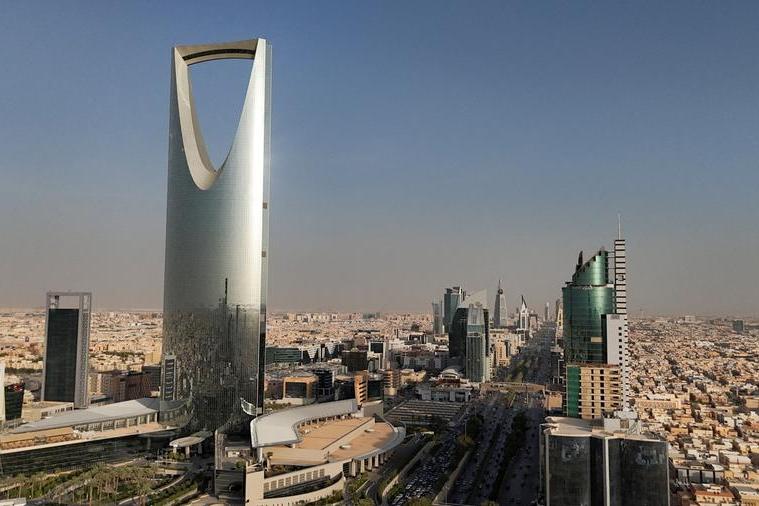- Sports 150
- Posts
- DAZN Bets $1B, Brady's Multi-Sport Empire, Stadiums Turn REITs
DAZN Bets $1B, Brady's Multi-Sport Empire, Stadiums Turn REITs
Sovereign capital, stadium-district real estate, and athlete-investor playbooks converge this week, signaling that the next wave of sports growth will be financed—as much as it’s played—on balance sheets.
Good morning, ! This week we’re breaking down the billion-dollar stadium plays redefining what a sports franchise is, why DAZN’s Club World Cup move is more geopolitics than game plan, how athletes like Angel Reese and Tom Brady are becoming multi-sport investors, and why eSports M&A is shifting from splashy rollups to ecosystem-building bets.
Join 50+ advertisers who reach our 400,000 executives: Start Here.
Know someone who would love this? Forward it their way! Here’s the link.
— The Sports150 Team
MEDIA & SPORTS
Dazn’s $1B Club World Cup Bet Isn’t About 2025—It’s About the Endgame
The $1B rights deal between DAZN and FIFA for the Club World Cup isn’t just a media play—it’s a geopolitical power move masquerading as a tournament. In classic form, the funding chain loops: DAZN cuts the check to FIFA; Saudi Arabia takes a 10% stake in DAZN for $1B; FIFA then unveils a $1B prize pool. And just like that, global football’s newest flagship is floating, uncontested.
But here’s the real play: DAZN’s move isn't about making money today—it lost $1.4B in 2023. It’s about embedding itself in the infrastructure of a future where sports rights aren’t just assets—they’re platforms. The Club World Cup offers an optics testbed: stars over clubs, mobile-first branding, influencer-led distribution, and full detachment from legacy leagues.
What’s emerging isn’t just a bigger tournament. It’s the scaffolding for a World Super League, framed for streamers, fronted by Messi, and driven not by fans but by sovereign capital and venture ambition.
Legacy fans may scoff, but the economics are clear: the next frontier isn’t sport as tradition—it’s sport as a digital-native, nation-backed, frictionless export. DAZN is just beta-testing the format. (More)
From a $120M Acquisition to a $1.3T Market

The wealthiest companies target the biggest markets. For example, NVIDIA skyrocketed ~200% higher last year with the $214B AI market’s tailwind. That’s why investors like Maveron backed Pacaso.
Created by a founder who sold his last venture for $120M, Pacaso’s digital marketplace offers easy purchase, ownership, and enjoyment of luxury vacation homes. And their target market is worth a whopping $1.3T.
No wonder Pacaso has earned $110M+ in gross profits to date, including 41% YoY growth last year alone. Now, with new homes planned in Milan, Rome, and Florence, they’re really hitting their stride. They even reserved the Nasdaq ticker PCSO.
And you can join well-known firms like Greycroft today. Lock in your Pacaso investment now for $2.90/share.
*This is a paid advertisement for Pacaso's Regulation A offering. Please read the offering circular at invest.pacaso.com. Reserving the ticker symbol is not a guarantee that the company will go public.Listing on the Nasdaq is subject to approvals.
INVESTOR CORNER
Stadiums Are the New REITs
Teams aren’t just running plays—they’re running real estate portfolios. From The Battery Atlanta ($700M+ annual revenue) to Chicago’s One Central and the Intuit Dome in LA, franchises are flipping parking lots into cash-flow compounds. The logic is simple: stadiums guarantee foot traffic, civic goodwill, and cultural gravity. For investors, that translates into inflation-hedged, long-horizon yield—without needing to sweat ticket sales. Private equity, infra giants, and sovereign funds are circling these “stadium districts” as core-plus real estate with an experience economy twist. TL;DR: The asset isn’t the team—it’s the land underneath. (More)
ENTREPRENEURS
Tom Brady’s Post-NFL Playbook: Win, Invest, Repeat
Tom Brady isn’t just trading playbooks for boardrooms—he’s calling audibles across sports, tech, and wellness. His headline move? A 5% stake in the Las Vegas Raiders, part of a $300M deal with Knighthead’s Tom Wagner. Sure, it came with a $24M “flip tax” and a sub-$4B valuation—but Brady’s not buying trophies, he’s buying tables. Add in ownership slices of the WNBA’s Aces, Major League Pickleball’s Night Owls, and Birmingham City FC, and he’s effectively a one-man multi-sport holding company. His TB12 brand and bets on Fanatics, Class Technologies, and yes, the now-flamed-out FTX, prove one thing: Brady’s building a business empire with as much range as his arm. (More)
COLLEGE ATHLETICS
From NIL to ROI: College Athletes Embrace Ownership
The NIL era didn’t just let athletes monetize their brands—it’s ushering in a mindset shift from wage earners to wealth builders. On Power 4 campuses, some athletes now out-earn faculty, and a growing number are thinking beyond endorsements toward asset ownership.
Consider WNBA rookie Angel Reese, who announced her stake in a new women’s soccer team in Washington, D.C. She joins a rising class of athlete-investors—Julie Foudy, Renee Montgomery, Candace Parker—who view ownership not as a post-retirement move, but a parallel play.
This isn't just about capital. As NYU’s Scott Galloway frames it: the real leap is from Earnership to Ownership, where wealth isn’t earned but scaled through tax-advantaged investments. Harvard’s James Wood ties this to “effective altruism”—a drive among young high-earners to lift their communities.
Institutions now face a new frontier: how to support financially ambitious student-athletes navigating the intersection of NIL, investing, and influence. The question isn’t just who gets paid—but who gets equity. (More)
PRESENTED BY PETE
Train your healthcare teams for real-world scenarios

PETE is the only tool you need for creating and managing courses in your own virtual academy — no training department needed. From compliance to patient care, get your healthcare staff up to speed faster and easier with PETE's AI-powered training solution.
TECH & INFRASTRUCTURE
Stadium as Strategy: Inside Miami’s $1B Soccer Engine

Forget public subsidies—Inter Miami is writing its own stadium check. The $1B+ Miami Freedom Park, set to open in 2026, goes beyond the pitch: it’s a vertically integrated complex with retail, office space, a 750-room hotel, and a public park. Powered by the Messi-fueled surge in global attention, the development aims to convert hype into long-term, recurring revenue. It’s also a case study in how sports franchises are evolving: stadiums are no longer standalone assets—they’re core-plus real estate platforms with IP on top. (More)
eSPORTS
Deal Volume Holds, But Dollars Dip: eSports Consolidation Enters a New Phase
Q1 2025 saw 42 iGaming-related M&A deals, matching the sector’s highest mark in the past two years. But deal value tells a different story: $6.6B was transacted—up from Q4’s muted $4.9B but still far off the Q3 2023 outlier of $69.1B.
That Q3 spike was fueled by mega-platform rollups and sovereign-backed infrastructure plays. Since then, deal activity has normalized, but the number of small-to-mid-sized transactions remains strong. This points to a strategic shift: acquirers are buying growth, not scale.
For VCs and strategics alike, the move is toward niche: competitive mobile games, creator-led studios, and social-first gaming IP. With macro liquidity improving and regulatory pressure easing, 2025 could be a breakout year—not for a blockbuster acquisition, but for the volume of ecosystem bets piling up beneath the surface.
The next phase of eSports M&A isn’t about headlines. It’s about stitching together the stack: platforms, rights, creators, and tech. And for savvy acquirers, this is the quarter they started rebuilding. (More)

INTERESTING ARTICLES
TWEET OF THE WEEK
Cristiano Ronaldo just signed one of the most outrageous contracts in sports history 🤑
Ronaldo’s new deal with Al-Nassr is worth a jaw-dropping $244 million per year, solidifying his place not just as a football icon but as a global business empire.
The contract isn’t just
— ClutchPoints (@ClutchPoints)
2:01 PM • Jun 28, 2025
"Success is not the key to happiness. Happiness is the key to success. If you love what you are doing, you will be successful."
Albert Schweitzer




